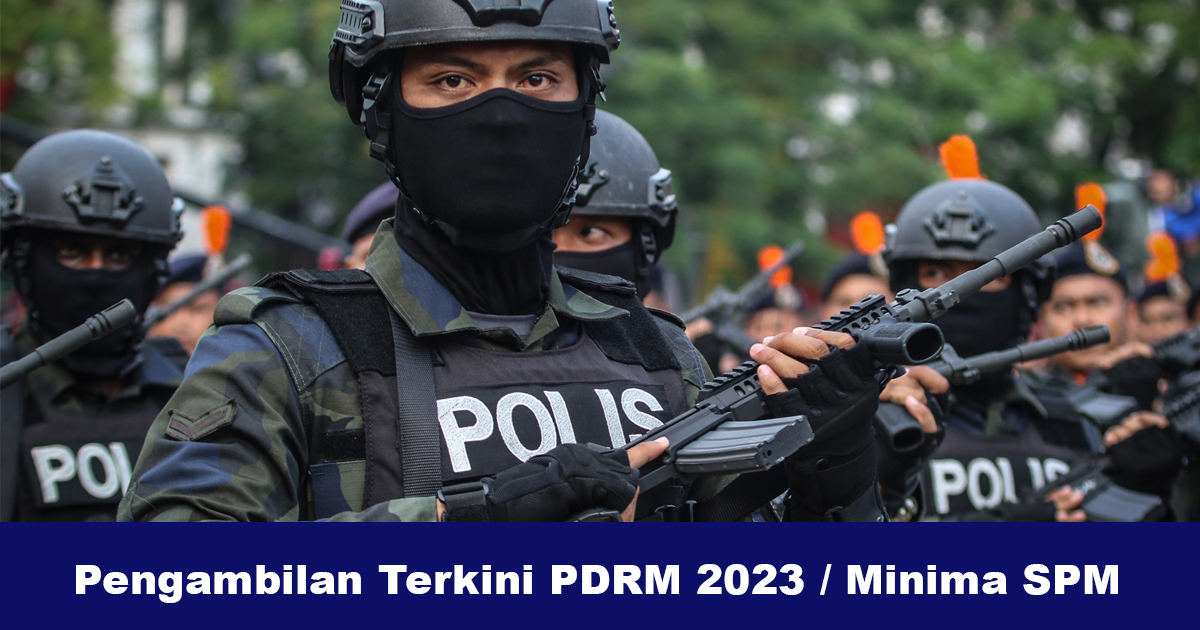THE police have certainly made the news recently: charges relating to theft, murder, extortion and sexual assault have been laid against a few police officers in the past few weeks.
Amid this, the Inspector General of Police (IGP) said only a handful of officers and police personnel – fewer than 2% – are grappling with issues and engaging in criminal activity. He gave an assurance that the public could trust the police force to conduct transparent investigations into criminal cases involving its personnel.
Indeed, quick action was taken to arrest two policemen who were suspects in a rape-and-extortion case. Following an investigation, both men were charged in court. The timeframe from the allegation to the charge in court took less than two weeks.
Being charged in court indicates the complaint was taken seriously and that some evidence of wrongdoing exists.
But being charged in court does not mean a conviction will automatically follow unless the accused pleads guilty. In the above case, this has not yet taken place. And so, the outcome of the trial is another matter entirely.
The quick police action ‘against their own’ in the above case lies in stark contrast to the case of Kathir Oli. The 31-year-old contractor was shot by a police officer in 2011 outside a pub in Ipoh.
It has taken the family with the assistance of Parti Sosialis Malaysia (PSM) 12 years to get some form of acknowledged truth about what happened on the night of the incident. It was a long struggle to get an inquest held and to appeal the coroner’s open verdict.
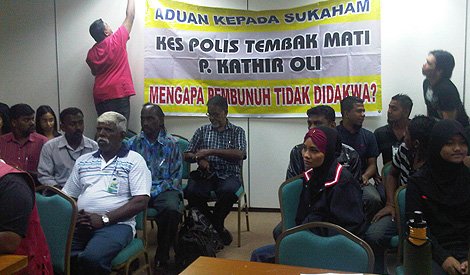
Finally, the Ipoh High Court had on Jan 18 ruled that the killing of Kathir was not an act of self-defence as claimed by the police but a homicide.
What will happen next? Will the Attorney-General charge the police officer based on the decision of the High Court – or will there be an appeal against the High Court decision? What is it going to take to get some accountability from the police officer who shot Kathir?
Bad apples or systemic problem?
While highlighting errant police officers within the police force, it would be remiss not to acknowledge all those police officers who have shown dedication above and beyond the call of duty.
Many officers work tirelessly to protect people from crime and enforce the law. Many have sacrificed not only their time and sometimes also their lives in the line of duty. The country owes these dedicated officers a debt of gratitude.
But the presence of dedicated police officers cannot detract from the complaints of police misconduct and abuse of power. Some may argue that these incidents are due to a few rogue officers who were acting beyond their scope of legitimate power. But is it really a case of a few bad apples?
There are those who would argue otherwise – that the misconduct coming to light indicates a systemic problem within the police force that allows rogue officers to carry on in the way they do with impunity.
If a ‘blue wall of silence’ exists, then rogue police officers would be protected from public scrutiny or from being held accountable for their wrongdoings.
Reporting police misconduct and abuse
Cases of police misconduct or abuse of power are only exposed when people are brave enough to lodge a police report. Or if the media picks it up – as recently shown when a video of a police officer assaulting a man went viral and gained public attention.
Assurances are then given that an investigation would be carried out and action taken. But how many are in a position to film on their mobile phone what is happening to them or to someone else when stopped or detained by the police, assuming that they have a phone on them in the first place.
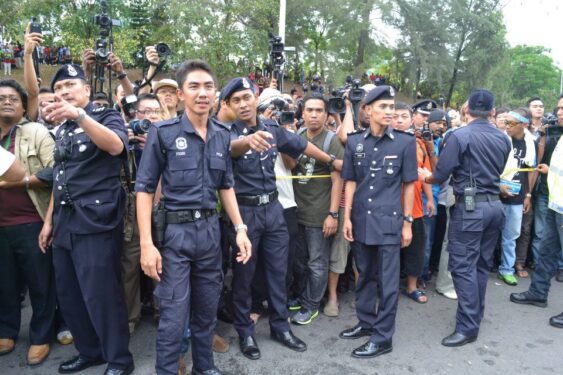
People in vulnerable positions – for example, refugees or migrant workers – would find it difficult to lodge reports about police harassment. People might also be afraid of the repercussions of lodging a report against the police. Who would support their claims? And how many police officers would report their colleagues?
Without reports being made, one can only wonder about the extent of police misconduct. An appalling thought indeed. The public expects good policing standards and professionalism in the force.
Yes, the police are only human and capable of error. But the fact that they are entrusted with authority and power to keep law and order makes misconduct and abuse of power totally unacceptable.
Policing the police
Every time a case of police misconduct or abuse of power comes to light, public trust and respect for the police force erodes even further.
So it is vital that whenever police personnels break the law, they must be quickly held to account and brought to justice. This would build public trust in the force and set a standard for police professionalism.
But can the police be policed? It has been 19 years since an independent police complaints and misconduct commission (IPCMC) was first mooted by a royal commission on the operations of the police in 2005.
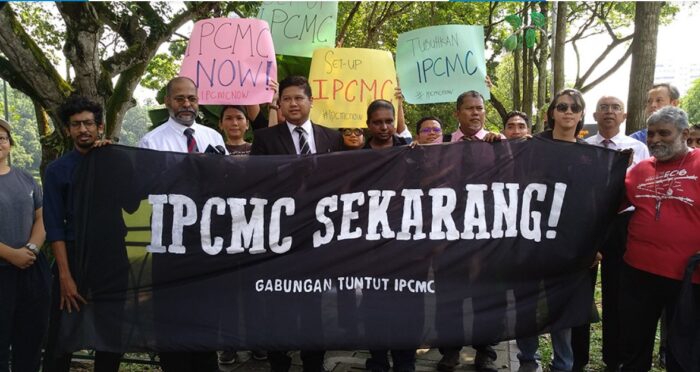
As has been previously documented, it took 14 years before the IPCMC Bill was tabled by the Pakatan Harapan (PH) government in Parliament in 2019. The IPCMC was meant to replace the Enforcement Agency Integrity Commission (EAIC) set up in 2011 to investigate misconduct by law enforcement agencies.
The IPCMC Bill was eventually referred for review to a parliamentary select committee.
But with the fall of the PH government in 2020 and a lack of commitment to the IPCMC by the subsequent Perikatan Nasional (PN) government, the country was instead given the Independent Police Conduct Commission (IPCC) in 2022.
The IPCC has been described as a diluted version of the IPCMC – lacking in investigative and disciplinary powers. Among the shortcomings listed, the IPCC can only propose recommended action to the Police Force Commission or other relevant authorities should a police officer be found to have committed a wrongdoing.
But who is to ensure that the recommendations will be accepted and implemented? What has been the uptake of the recommendations by the EAIC and SUHAKAM (Human Rights Commission of Malaysia) to the police over the years? How realistic is it to expect the police to police themselves?
What’s next?
So, where do we go from here? The answer must lie with civil society, the media and the judiciary. Public and media pressure have a key role to play in pushing for police accountability, professionalism and a change in the culture of policing.
Such pressure has resulted in several initiatives to create a more transparent and accountable police force.
The introduction of CCTV cameras in police cells and the use of body-worn cameras for police officers stationed in the field was a welcome move.
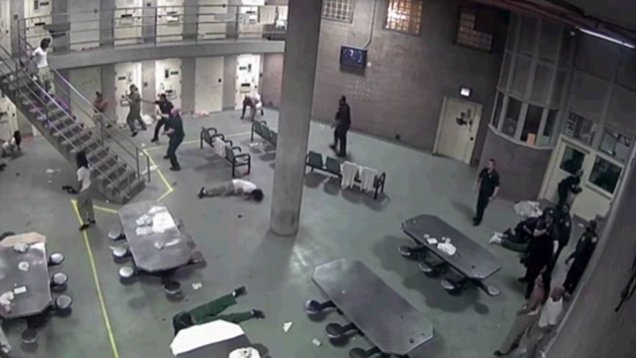
Another step in the right direction was the announcement to set up custodial medical units in five centralised police detention facilities in a bid to reduce custodial deaths.
The production of a human rights module by both SUHAKAM and the police to strengthen the training of police officers will also raise awareness on key standards.
All these initiatives still need to be monitored for proper implementation, follow-through and effectiveness. It is a huge ask of the public and the media to not only remain vigilant but also highlight and monitor these efforts. But it must be done.
Let us not forget the role of the judiciary. People will look to the courts for redress when their rights are violated. The judiciary is a key institution to protect people from the excesses of the state.
The courts must therefore be open to the possibility of abuse of power by state authorities (in this case the police) and diligently seek the truth of the matter, including through the coroner’s court.
Improving police standards and professionalism in the police force is a long-term goal to work towards. It will not happen overnight.
Kathir Oli’s case is one example of the relentlessness of family members to get the truth out in the open and for some police accountability to take place. It has not come without years of pain and heartache.
We must continue to hold the government, including the Home Ministry, accountable so that policing standards can be improved.
We must encourage and support good initiatives for better policing. And we must continue to call out police misconduct and abuse of power and the impunity which allows such abuse to happen.
Nothing will change unless we create that push for change. – Jan 31, 2024
Prema Devaraj is co-editor of the ALIRAN newsletter.
The views expressed are solely of the author and do not necessarily reflect those of Focus Malaysia.


